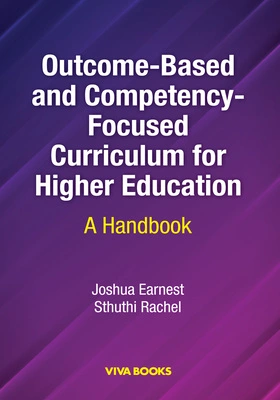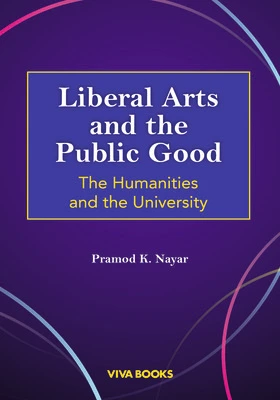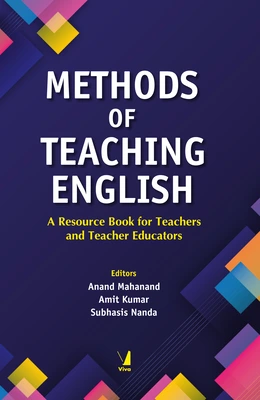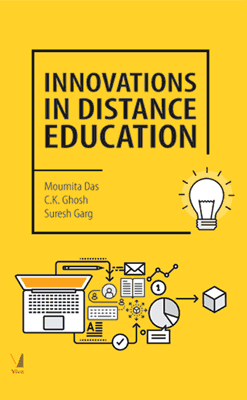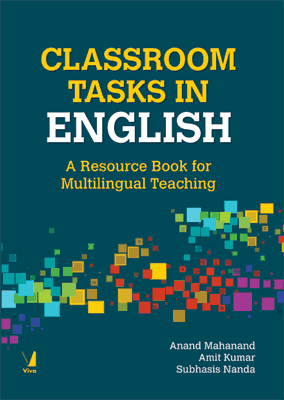Teaching Science in the 21st Century
Teaching Science in the 21st Century
₹805.50 ₹895.00 Save: ₹89.50 (10%)
Go to cartISBN: 9788130928449
Bind: Paperback
Year: 2017
Pages: 384
Size: 171 x 241 mm
Publisher: National Science Teachers Association
Published in India by: Viva Books
Exclusive Distributors: Viva Books
Sales Territory: India, Nepal, Pakistan, Bangladesh, Sri Lanka
Description:
This powerful book is brain food for all those who care deeply about science and students —including teachers, science educators, curriculum specialists, and policy makers. The collection of 21 provocative essays gives you a fresh look at today's most pressing public policy concerns in science education, from how students learn science to building science partnerships to the ramifications of the No Child Left Behind legislation. The editors capture the latest research, trends, and best practices that science teachers and science leaders can use, organized around five themes:
• Science of Learning Science explores up-to-date thinking on the methods, procedures, and reasoning processes students use to accumulate knowledge of the natural world.
• Leadership in Science Teaching and Learning addresses the bold leadership necessary to bring out substantive change in science programs in today's complex educational systems that must occur at all levels.
• Professional Development: Implications for Science Teaching and Learning examines research on the effectiveness of high-stakes accountability systems in bringing about improvements in professional development and student learning.
• Within the Science Classroom looks at the impact of technology, the importance of a standards-based curriculum, assessment of science instruction and student learning, and planning science experiences for diverse student populations.
• Building Science Partnerships and Collaboration considers the importance of partnerships in science education reform, the impact of No Child Left Behind, and the role of professional learning communities in strengthening the science program.
Teaching Science in the 21st Century is the latest joint publication of NSTA and the National Science Education Leadership Association. It provides a blueprint for developing a culture that allows and encourages science leaders to continually improve science programs.
Target Audience:
This book is for all those who care deeply about science and students - including teachers, science educators, curriculum specialists and policy makers. It shares the ideas and research of individuals ranging from science supervisors to university personnel to those who work for agencies representing science education.
Contents:
Foreword • Preface • About the Editors • Acknowledgments
Part I: Within the Science Classroom
The Impact of Technology on the 21st Century Classroom - Karen E. Irving • The Science Curriculum: Trends and Issues - Rodger W. Bybee • Classroom Assessment in the Service of Student Learning - Janet E. Coffey • Engaging Teachers in Research on Science Learning and Teaching - Emily H. van Zee and Deborah Roberts • Celebrating Diverse Minds: Using Different Pedagogical Approaches - Hubert M. Dyasi
Part II: Professional Development: Implications for Science Teaching and Learning
Leading Professional Development for Curriculum Reform - James B. Short • Advancing student Achievement Through Professional Development - John H. Holloway • Building Ongoing and Sustained Professional Development - Jack Rhoton and Brenda Wojnowski • Best Practices for Professional Development for the 21st Century - Karen J. Charles and Patricia M. Shane
Part III: Leadership in Science Teaching and Learning
Leadership in Science Education for the 21st Century - Rodger W. Bybee • The Principal as Leader of Change - Nicole Saginor • Keeping Good Science Teachers: What Science Leaders Can Do - Linda Darling-Hammond and Mistilina Sato • Understanding Supply and Demand Among Mathematics and Science Teachers - Richard M. Ingersoll
Part IV: Building Science Partnerships and Collaboration
The Importance of Partnerships in Science Education Reform - George D. Nelson and Carolyn C. Landel Developing Professional Learning Communities - Beth Giglio • No Child Left Behind: Implications for Science Education - Susan Mundry • Alternative Certification: Aspirations and Realities - Norman G. Lederman, Judith S. Lederman, and
Fouad Abd-El-Khalick
Part V: Science of Learning Science
Brain Research: Implications for Teaching and Learning - James E. Hamos • How Do Students Learn Science? - Nancy P. Moreno and Barbara Z. Tharp • The Psychology of Scientific Thinking: Implications for Science Teaching and Learning - Junlei Li and David Klahr • Research in Science Education: An Interdisciplinary Perspective - Michael R. Vitale and Nancy R. Romance
About the editors:
Jack Rhoton is an educator with more than 30 years of experience, covering every level of education from elementary through graduate school. He teaches science and science education courses to preservice and inservice science teachers at East Tennessee State University, where he is professor of science education. He is a researcher in K?12 science, especially in the area of professional development and its impact on science teaching and learning. He has served as president of the National Science Education Leadership Association (NSELA), president of the Tennessee Academy of Science (TAS), and president of the Tennessee Science Teachers Association (TSTA). He is editor of the Science Educator, a publication of NSELA.
Patricia Shane is the associate director of the Center for Mathematics and Science Education and is an associate professor of education at the University of North Carolina at Chapel Hill, where she teaches and provides professional development for mathematics and science teachers. She works closely with the UNC-Chapel Hill Pre-College Program, which recruits underrepresented groups into math and science fields.
She has been the project director for numerous grants, including more than 30 Eisenhower grants, and has received awards for service in science education, including the National Outstanding Science Supervisor Award from NSELA. She is serving as the immediate past-president of NSELA and is a past president of the North Carolina Science Teachers Association and the North Carolina Science Leadership Association.

